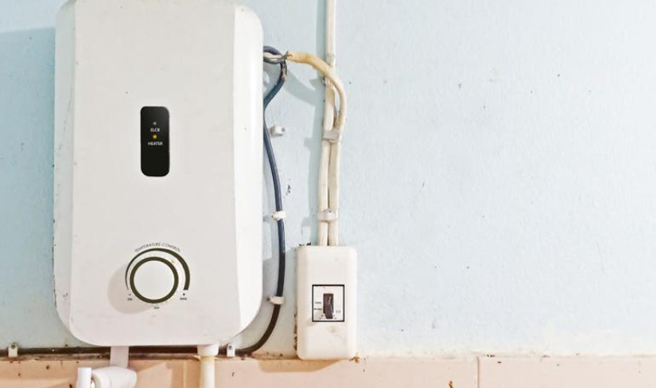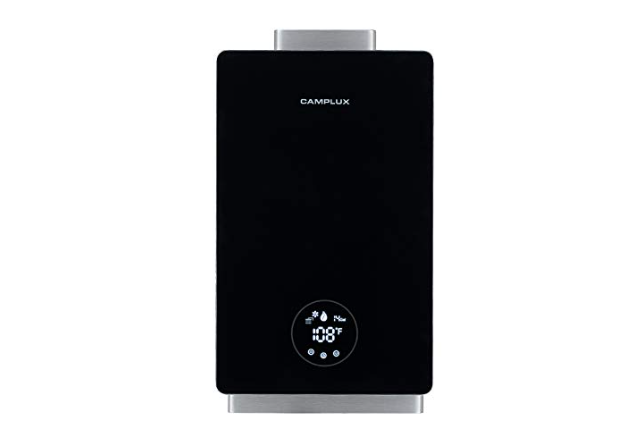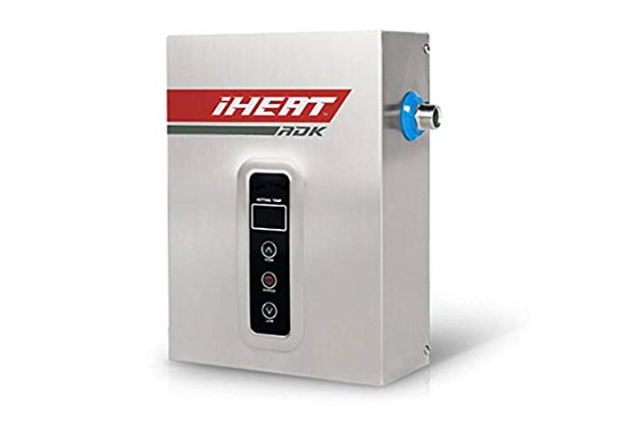Different sizes and capacities are available for water heaters. The size of wires varies when gallons are taken into account. It’s crucial to measure the optimal wire size for a water heater. Short circuits may result from mismatched cables. Do you want that? What size wire for water heater, then?
Here are the things you should be aware of when buying water or replacing your current supply. Let’s get started by discussing the information you need: what size wire for water heater?
For My Water Heater, Why Does Wire Size Matter?
A fire is more likely to start if the wire is too tiny (with a higher gauge number). This is so that the wire won’t be forced to carry more electricity than it can handle by the water heater. Overheating will result from this. A smaller diameter translates into more significant resistance, so keep that in mind. Additionally, a wire will produce more heat the more resistance it has. In terms of gauge, the smaller the wire, the higher the number. The wire is more significant the lower the number. A 6-gauge wire is thicker than a 10-gauge wire, for example.
Larger wires provide no issues. Using larger wires is preferable to using smaller ones. A larger wire is unlikely to have a substantial impact unless your circuit was improperly constructed. However, the price will increase. If you didn’t know, heavier wires are more expensive than lighter ones. Use the proper wire size for your heater’s wattage to avoid wasting money and possibly disastrous fires.
Hot Water Tank Wire Size
According to the chart below, what size wire for water heater? The most popular home hot water tanks are standard wire size for storage spaces under 38 US gallons. We advise sticking with the 12 gauge AWG minimum wire size. Pay attention to the lesser tanks’ voltage.
Instead of 220 or 240 volts, some of them can be 110. The elements will blow up if you disconnect them. Never forget to fill the tank with water before turning it on. When in doubt, make sure to speak with a local expert. A standard hot water tank needs wire that is 12 gauge AWG in total. Up to 20 amps of current can flow through this wire. This would apply to most 38 US-gallon domestic hot water tanks with 3000-watt components. The nameplate information on the tank’s side should be indicated. We have created a helpful chart Based on 240V, this calculation because not all tanks are the same size or power.
Regarding Amperage
| Amperage | Wire Size |
| 20A | 12 Gauge |
| 25A | 10 Gauge |
| 30A | 8 Gauge |
| 50A | 8 Gauge |
| 60A | 6 Gauge |
In Gallon Units
| Gallon | Wire Size |
| 30 Gallon | 12 Gauge |
| 40 Gallon | 12 Gauge |
| 50 Gallon | 6 Gauge |
| 80 Gallon | 6 Gauge |
How to Determine the Wire Size for a 40-Gallon Water Heater
What size wire for water heater? For a 40-gallon heater, you can no longer use any wire size. To measure it, you must first gather some data. Like as:
- The kind of wire (copper or aluminum)
- The circuit phase
- Volts in a circuit
- One-half of the circuit’s overall length
- Circuit amperage overall
A typical 40-gallon Camplux Instant Hot Water Heater operates at 240 volts and 2500 W of power. Thus, by dividing 2500 by 240, we can determine that the amperage is 18.75 A. It can be roughly 20 A. 80 meters, and a single circuit phase makes up one-half of the entire circuit.
A calculator may now be used to calculate the size of a 40-gallon wire. Therefore, 12 gauge copper wire is appropriate for this. Using the procedure mentioned above, you may determine the wire size for your heater.
How Can I Determine The Ideal Wire Size For My Water Heater?
It would help if you had the amperage to determine the precise wire size. For instance, suppose you had a 120V, 3,000W heater. The amperage is (3000/120)*80%, which gives you 45 amps, according to the 80 percent rule. According to the amperage chart, the ideal wire size for a 3000W heater is 8 gauge.
These things must also be taken into account.
1 – Voltage
| Voltage | Wire Size |
| 220V | 10-2 Gauge |
| 240V | 10-2 Gauge |
The majority of water heaters use 220-250V. They employ two circuit breakers. You don’t need to pay as much attention to the voltage as you do to the amperage because the voltage needs of most electric water heaters are the same.
2 – Wattage
You may find out how much electricity the water heater needs by looking at its wattage. However, you cannot choose the wire size for a water heater based on its wattage. The amperage is required.
3 – Breaker Size
Technically, you can determine the water heater wire size without knowing the size of the breaker. You can determine the amperage, which in turn exposes the wire size after you have the voltage of your circuit and the heater’s wattage. But the size of the breakers is equally crucial.
- The breaker will constantly be tripping if a water heater is connected to a smaller-sized breaker, which is inconvenient. Overloads and short circuits won’t trigger the breaker if it is too big. The breaker’s size is crucial.
- Second, the water heater’s requirements will probably be met by wiring the same size as the breaker. For example, using the example from above, you must multiply the amp rating (25A) of your water heater by 125 percent to comply with NEC rules.
- You’ll get 31 amps as a result. When choosing a breaker, aim for a size closest to 31 amps. A 35A breaker is an obvious solution. Consequently, a 35A breaker is needed for a 25A water heater. 8-gauge wire is necessary for a 35A breaker.
4 – Gallons.
If you’ve ever shopped for a water heater, you are aware that the size of the tank will affect the unit’s price. You’re also aware that many contractors measure the wire size in gallons. 12-gauge wire is needed for a 40-gallon heater. On the other hand, a 50-gallon water heater requires a 6-gauge wire. Similar to amperage rating, wire thickness increases with tank size. You don’t need to use gallons to determine the wire size. You can disregard the gallons if the heater has a label that displays the watts.
A standard 40-gallon heater, for instance, has a 2500 watt rating. You now have an amp rating of 18.75. (2500 divided by 240). You can use 12-gauge wire on an 18.75A unit because a 20A water heater requires that size.
How Many Wires Are Required For A Water Heater?
What size wire for water heater? This is a frequently asked question, and the answer is yes: a 120-volt water heater needs two wires. 12/2 wire is needed for 240-volt water heaters. Commercial three-phase water heaters need three wires.
Each water heater has a varied length, gallon capacity, and wattage. In light of this, before installing your new tank, you must be aware of the following:
- A water heater’s kind (electric or gas)
- Your hot water needs’ the required wattage or gallon age
- The amount of element wire necessary to finish the installation.
Can 10/2 Wire Power A Water Heater?
When switching from a 60-gallon to a 40-gallon tank, your breaker size would be 25 when using wire 10/2. Consequently, a 20 amp would be suitable for 3000 watts? For all of those possibilities, 10/2 ought to work.
When connecting your water heater to the wall or an outlet, don’t forget to sleeve the 10/2 cord. Non-metallic cannot have been “exposed.” If you don’t utilize an EMT conduit, this small segment of flexible conduit is simple to handle. The 60-gallon 4500w tank was previously owned with a 10/2 cable and a 30 amp DP breaker.
Can 12/2 Wire Power A Water Heater?
You’ll need a 30-ampere grounded 240-volt connection for your great iHeat Tankless S-16 water heater to function correctly. You’ll need 12/3 wire to power the water heater because 12/2 wire is only rated for 20 amperes. A 12/2 plus ground wire would be needed for even a tiny 6-gallon 1500-watt water heater. The maximum current for 12 gauge wire is 20 amps, although most standard-sized water heaters require a more significant current.
Typically, a 220/240-volt electric water heater has 2 hots, 1 neutral, and 1 ground. Your red and black are both scorching leads. I strongly suggest you think about hiring an expert as I have no more understanding than it appears you have. 12-gauge wire is necessary for a 20-amp water heater. 10-gauge wire is needed for a 25-amp water heater.
Your water heater is known as a Reliance 602. Its 4500W heating element is enough. The wiring, 12MV/24AWG, is likewise in good condition.
Things to Consider When Replacing Electric Heater Wires
You must obtain a permit before replacing any wiring for a water heater. An inspector checks to see if the plumbing and electrical connections are made correctly. You must adhere to the following guidelines if you plan to replace the wire:
- A 40-amp double-pole breaker is integrated with the circuit wiring. 10-2 non-metallic (NM) cables are also part of it.
- The lead of the black wire should be connected to the black circuit wire. The red or white wire’s lead should be connected to the white circuit wire.
- The breaker box’s white circuit wire must be covered in either black or red electrical tape. Which wire represents the “hot” and “neutral” wires?
- Current flows via both wires in a 240-volt circuit (black and white). Therefore, join the circuit ground wire to the water heater’s green ground screw.
Quick Tip: Your heater will be harmed if you don’t use the correct size breaker. Call a qualified mechanic to address this issue if all else fails.
Conclusion
What size wire for water heater, so, what can we conclude from this? Use a small wire to handle the heater’s current requirements when wiring a water heater. For instance, 12-gauge wire is required for 20-amp hot water heaters, 10-gauge wire for 25-amp hot water heaters, and 8-gauge wire for 30- to 40-amp water heaters. Some big heaters require 6-gauge wire since they can draw up to 50 amps.
Frequently Asked Questions
A: You must comprehend why it is essential to match the wire if you are replacing the wiring for your heater. It lessens the likelihood of the wire heating up. Conversely, using a wire that isn’t matched will result in short circuits.
Let’s say you have a 30-amp circuit with 6-gauge wire and a 40-gallon water heater. The cables cannot withstand the amount of electricity a 220-volt heater can pass. Similar to how your shower cable heats up, it melts around materials. Extremely high levels of danger exist. Even a fatal misalignment is possible.
A: Metallic cables with insulation are required. Pay close attention to how the gauge relates to the distance. Most people know that a thicker wire with a smaller gauge is necessary for a more excellent amp rating. They are unaware that as the distance rises, the wire’s thickness should also.
A: Black, white, and ground wires are necessary for a water heater. White and black wires serve hot conductors in a 10-2 ground shielded cable. The ground wire will reach the neutral plug. The black and red wires are the hot conductors if your cable is a 10-3 ground shielded cable with an additional conductor.
A: A 10 gauge AWG wire would be needed for a 4500-watt water heater. Up to 30 amps of current can flow through this wire. The size and wattage of each tank vary.


